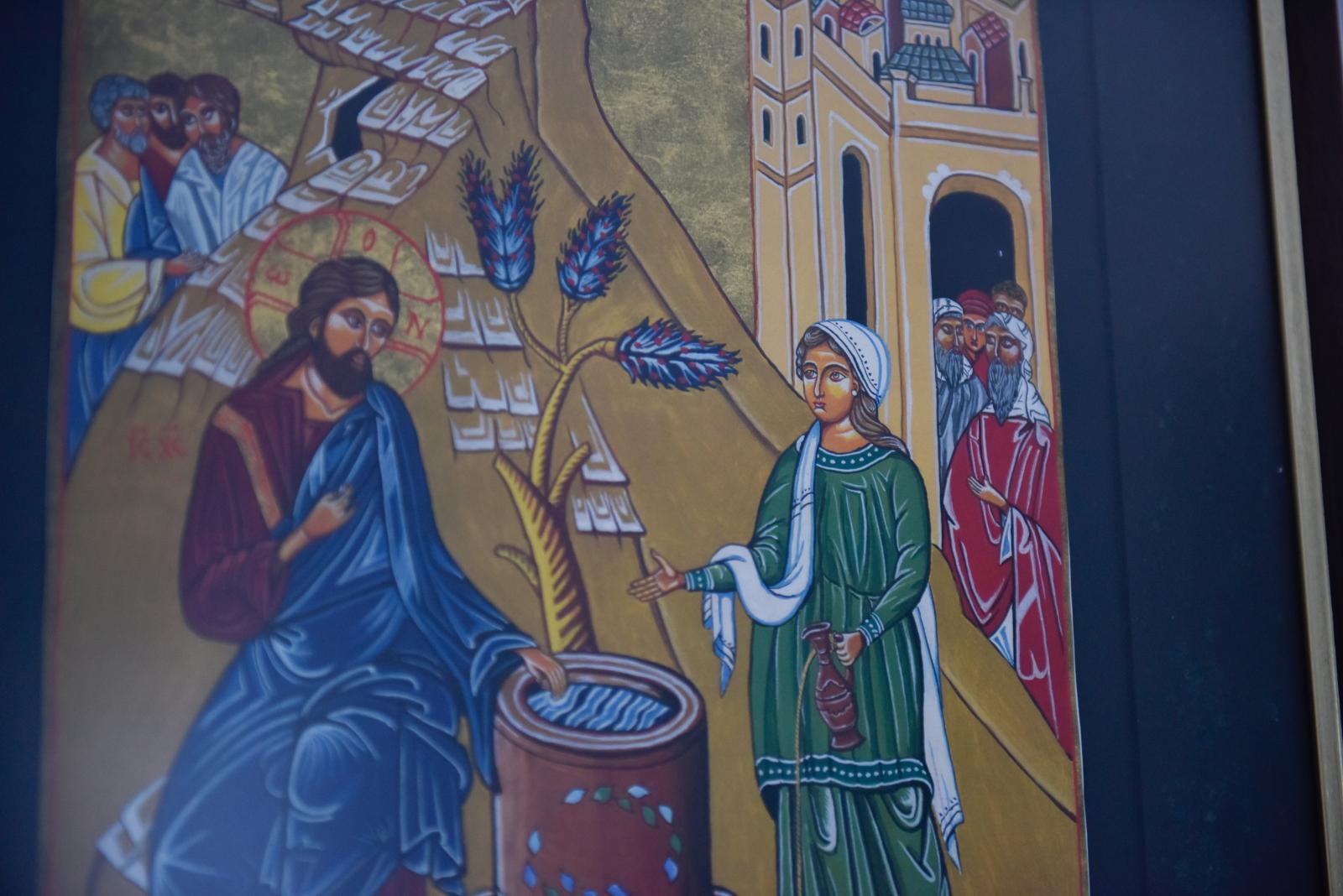Bishop Nicholas Hudson reflects on the story of the woman at the well and how the Synod teaches us that conversations in the Spirit can lead us to conversion:
'Repent, and believe in the Gospel.' That is the phrase that always comes to mind when I hear the word 'conversion'. 'Repent, and believe in the Gospel', the words spoken by the one who distributes the Ashes on the first day of Lent.
I would never have thought of 'conversation' as implying conversion. And yet this was a persistent and powerful refrain of the Rome Synod in which I took part last October. We had a month of ‘Conversations in the Spirit’. These are conversations in which the stress is on listening. Sat at round tables, we would listen for several minutes to every person there; we would pause every so often for prayer; then go around the table once more before beginning to dialogue.
It occurred to many of us that, when we converse in such a way, it gives much greater opportunity for conversion to take place. That is to say, deep listening gives participants more of a chance to be changed by the Spirit through what they hear. It was helpfully suggested by Cardinal Grech that what happens in such a conversation is that we pass from consideration of the ‘I’, through the ‘You’, to the ‘We’ of what it means to be Church. That is to say, our instinct is to ask what side I take in the face of some controversial topic; but then, as we listen to others’ perspective on the same issue, something may change within us, a transition from asking where ‘I’ stand, through listening to where ‘You’ stand, and coming to a shared view as to where ‘We’ stand in the face of this issue, as the Body of Christ gathered round this table.
A bishop-friend who had had much experience of synods said to me, before I went to Rome, 'You need to remember, synods aren’t about changing the Church; they’re about changing you.' As I came away from Rome, I recalled his words and found myself thinking, 'I still believe synods are, to some extent, about changing the Church, or at least, about the Church changing. But I do see what he meant: they’re about allowing the Spirit to change us in order that we might change the Church and the way it relates to people outside of itself.'
The Synthesis of the Synod sought to capture some of this reflection. I liked the way it described the kind of conversion such conversation might engender in terms of a 'conversion to the "logic" of the Kingdom.' (14b) That is surely what we are each calling one another to aspire to on Ash Wednesday when we tell one another, 'Repent, and believe the Gospel': calling one another to embrace the logic of the Kingdom.
It is surely no coincidence that, right in the heart of Lent, we celebrate the longest and most remarkable conversation to be found in the Gospels: the conversation of Jesus with the unnamed Woman of Samaria. Through conversation, she moves from scepticism – 'Are you a greater man than our father Jacob?' – through to intrigue – 'I see you are a prophet, sir' – into dawning faith – 'I wonder if he is the Christ'. She extends the dialogue which this encounter has evoked within her to her fellow-Samaritans for her and them to decide together, 'He really is the saviour of the world.' We witness in this story a conversation that not only converts but saves!
